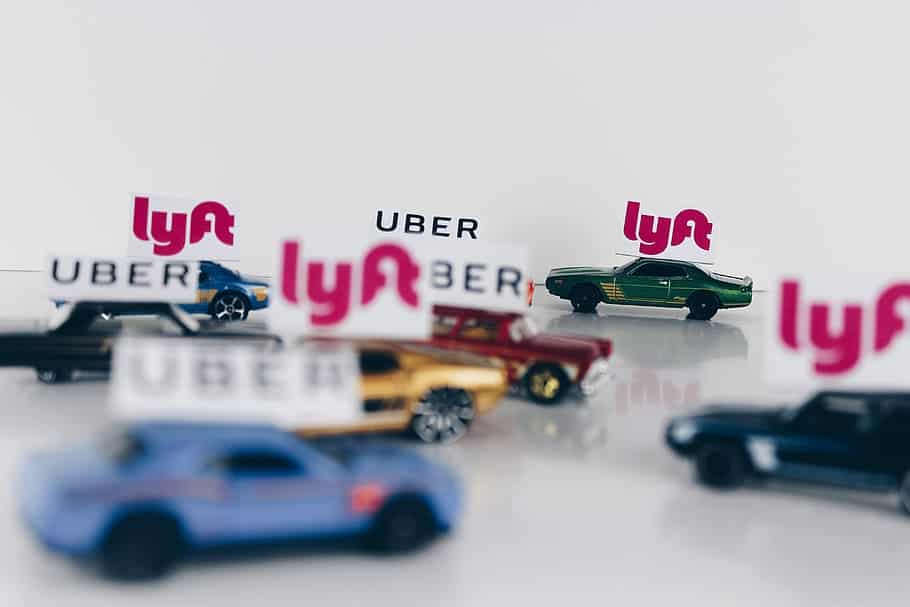William Greenlaw is a student at Harvard Law School.
The New York City Council today passed sweeping measures to improve conditions for delivery workers, including those at “app-based food delivery services like Grubhub, DoorDash and Uber Eats.” The legislation now “prevents the food delivery apps and courier services from charging workers fees to receive their pay; makes the apps disclose their gratuity policies; prohibits the apps from charging delivery workers for insulated food bags, which can cost up to $50; and requires restaurant owners to make bathrooms available to delivery workers.” The new rules go even further, allowing workers to set parameters on the trips they take without retribution. For example, many delivery workers are vulnerable to theft and robbery. A survey of 500 delivery workers recently showed that 54% of respondents reported being robbed on the job. To ameliorate this, the new rules permit workers to “determine the maximum distance they want to travel from a restaurant or specify that they are not willing to go over bridges to make a delivery.” This comes at a time where the multi-billion-dollar industry has endured tensions between pro-worker constituencies who favor stronger protections, and management of these companies, who have campaigned nationally to classify the workers as independent contractors. Many cities have attempted to innovate in regulating the sector, but none have gone so far as New York has. City Council Speaker Cory Johnson stated, “These workers sacrificed their own safety during the pandemic to bring food to our homes, yet in some cases they were denied bathroom access at restaurants and charged fees by third-party apps. I’m proud of New York City and this Council for standing up for these workers, and I urge other major cities to protect this industry.”
The Biden Administration is beginning to create federal rules to address dangerous levels of heat in the workplace. OSHA will be drafting rules that “govern[] heat exposure designed to protect those who work outdoors in agricultural, construction and delivery services as well as workers in warehouses, factories, and kitchens.” This effort comes on the heels of an incredibly hot summer. The National Weather Service has noted that “[e]xtreme heat is the number one weather-related killer.” Addressing this new initiative, President Biden declared, “Rising temperatures pose an imminent threat to millions of American workers exposed to the elements, to kids in schools without air-conditioning, to seniors in nursing homes without cooling resources, and particularly to disadvantaged communities. My administration will not leave Americans to face this threat alone.” Part of the initiative will be a Heat Illness Prevention Work Group to diagnose the nature of heat-related injuries and to provide solutions for workers in the most-affected industries.
Yale University and some of its workers came to a settlement agreement today regarding a lawsuit of ADA and healthcare law violations. The suit, Kwesell et al v. Yale University, alleged in a class action that Yale required many of its older workers to submit to a wellness program called the “Health Expectation Program” or else be fined $1,300. In the complaint, the workers wrote that the policy “places Yale employees who are subject to the [Health Expectation Program] in an untenable position: either divulge protected information (including prior insurance claims data) and submit to invasive medical examinations and testing, or forfeit a substantial portion of their salary to keep their personal medical and genetic information private.” Employees were compelled to hand over past insurance claims and “submit to invasive medical examinations and testing,” the complaint wrote. The workers, represented in part by the AARP Foundation, claimed these procedures violated the Americans with Disabilities Act and the Genetic Information Nondiscrimination Act. The case settled today after a “full day mediation and subsequent negotiations,” according to Yale University counsel.






Daily News & Commentary
Start your day with our roundup of the latest labor developments. See all
July 1
In today’s news and commentary, the Department of Labor proposes to roll back minimum wage and overtime protections for home care workers, a federal judge dismissed a lawsuit by public defenders over a union’s Gaza statements, and Philadelphia’s largest municipal union is on strike for first time in nearly 40 years. On Monday, the U.S. […]
June 30
Antidiscrimination scholars question McDonnell Douglas, George Washington University Hospital bargained in bad faith, and NY regulators defend LPA dispensary law.
June 29
In today’s news and commentary, Trump v. CASA restricts nationwide injunctions, a preliminary injunction continues to stop DOL from shutting down Job Corps, and the minimum wage is set to rise in multiple cities and states. On Friday, the Supreme Court held in Trump v. CASA that universal injunctions “likely exceed the equitable authority that […]
June 27
Labor's role in Zohran Mamdani's victory; DHS funding amendment aims to expand guest worker programs; COSELL submission deadline rapidly approaching
June 26
A district judge issues a preliminary injunction blocking agencies from implementing Trump’s executive order eliminating collective bargaining for federal workers; workers organize for the reinstatement of two doctors who were put on administrative leave after union activity; and Lamont vetoes unemployment benefits for striking workers.
June 25
Some circuits show less deference to NLRB; 3d Cir. affirms return to broader concerted activity definition; changes to federal workforce excluded from One Big Beautiful Bill.